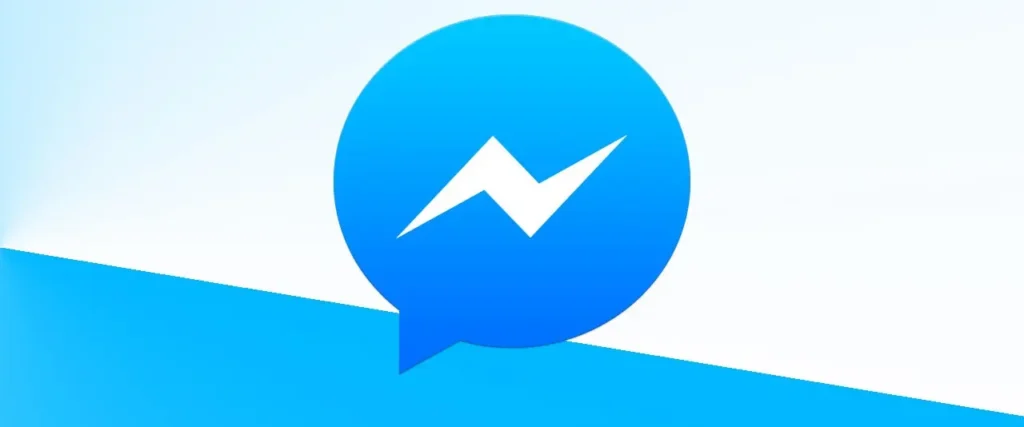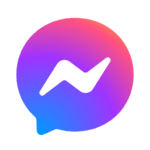Messenger
Meta Platforms Inc.
Jan 30, 2014
Aug 15, 2024
60.5 MB
471.1.0.51.108
Windows, Android
Description

Preface
Messenger, a standalone chat app by Facebook, was launched in 2011, evolving from Facebook’s messaging feature within its main social networking app. Initially designed to streamline and enhance the messaging experience, it quickly became a pivotal tool for real-time communication. Over the years, Messenger has expanded its functionalities beyond mere messaging, introducing voice and video calls, group chats, stickers, and various interactive features. This development reflects Facebook’s ambition to create a comprehensive communication platform, adapting to the growing demands for multifaceted digital interaction. Today, Messenger stands as a testament to the evolution of digital communication, embodying the shift towards more dynamic and integrated social interaction tools.
Main Features of Messenger
- Text Messaging: Enables sending and receiving text messages in real-time, supporting rich text formats, emojis, and stickers to enrich the conversation.
- Voice and Video Calls: Offers high-quality voice and video calls to other Messenger users globally, facilitating personal and group communications without the need for a traditional phone plan.
- Group Chats: Allows users to create group conversations for staying connected with friends, family, or work teams, supporting shared media, links, and files.
- Photo and Video Sharing: Users can easily share photos and videos within conversations, with options to capture moments directly through the app’s camera feature.
- Stories and Status Updates: Similar to other social media platforms, Messenger enables users to post stories or status updates that disappear after 24 hours, offering a temporary glimpse into their daily lives.
- End-to-End Encryption: For privacy-conscious users, Messenger provides an option for end-to-end encrypted chats, ensuring that conversations are secure and only accessible to the participants.
- Chat Customization: Offers various customization options, including chat colors, nicknames, and themes, allowing users to personalize their chat experience.
- Interactive Features: Integrates interactive elements such as games, polls, and bots, enhancing the engagement within the app.
- Cross-Platform Compatibility: Seamlessly connects with Facebook’s ecosystem, enabling users to message friends across Facebook, Instagram, and Messenger platforms.
- Business Integration: Supports interactions with businesses through automated bots for customer service inquiries, bookings, and more, streamlining the connection between consumers and companies.
Some Pros and Cons of Messenger
Pros
- Versatile Communication: Messenger provides multiple communication options, including text, voice, and video calls, catering to diverse user needs and preferences.
- Cross-Platform Messaging: It allows for seamless communication across different devices and platforms, including integration with Facebook and Instagram, enhancing connectivity among users.
- Rich Media Sharing: Users can share a wide range of media types, such as photos, videos, links, and documents, making it a comprehensive tool for sharing information and memories.
- End-to-End Encryption Option: For users concerned about privacy, Messenger offers end-to-end encryption in secret conversations, ensuring that messages are secure and can only be accessed by the conversation participants.
- Interactive and Fun Features: With features like stickers, GIFs, games, and customizable chat themes, Messenger makes conversations more engaging and personalized.
Cons
- Privacy Concerns: Despite encryption options, there are ongoing concerns about data privacy and how Meta (formerly Facebook) handles user data, potentially affecting user trust.
- Resource Intensive: Messenger can be resource-intensive, requiring significant storage space and battery power, which might affect the performance of lower-end smartphones.
- Internet Dependency: Like most messaging apps, Messenger relies on an internet connection, limiting its use in areas with poor or no connectivity.
How to Use Messenger?
1. Installation and Setup
- Download: Get the Messenger app from the AppToFounder.
- Sign In: Open the app and sign in with your Facebook account credentials. If you don’t have a Facebook account, you can sign up directly within Messenger using your phone number.
2. Starting Conversations
- New Message: To begin a new message, tap the pencil symbol in the upper right corner. You can enter a name, phone number, or email of the person you want to message.
- Group Chat: To create a group chat, select multiple contacts when starting a new message. Name your group and start sharing messages, photos, and more.
3. Sending Messages and Media
- Text Messages: In the text field at the bottom of the screen, type your message, then click Send.
- Photos and Videos: Tap the camera icon to take a new photo/video or the photo gallery icon to choose existing media from your device. Press send to share.
- Voice Messages: To record a voice message, hold down the microphone icon. Release the icon to send the message immediately.
4. Making Voice and Video Calls
- Voice Calls: To initiate a voice call, tap the phone symbol located in the upper right corner of the discussion.
- Video Calls: To initiate a video call, tap the symbol of a video camera located in the upper right corner of the discussion.
5. Customizing and Managing Chats
- Chat Colors and Emojis: Tap the conversation name at the top of the screen, then select “Customize Chat” to change colors, set custom emojis, or change the chat theme.
- Notifications: Within the same menu, you can manage notifications for each chat, turning them on/off as needed.
6. Privacy and Security
- Secret Conversations: Start an encrypted conversation by tapping the pencil icon, then the lock icon in the top right corner. Select a contact to initiate a secret conversation that uses end-to-end encryption.
- Manage Active Status: Control who sees when you’re online by adjusting your active status in the app’s settings.
Alternatives
- WhatsApp: A widely-used messaging app offering end-to-end encrypted text, voice, and video communications. It supports sharing multimedia, documents, and location, along with group chats and voice messages. Its universal popularity makes it a reliable choice for global communication.
- Telegram: Known for its emphasis on security and privacy, Telegram offers end-to-end encryption in secret chats. Large group discussions, open channels, and the exchange of substantial files and documents are all supported. Its unique features include bots, polls, and customizable themes.
- Signal: Prioritizes user privacy with state-of-the-art end-to-end encryption for all communications. Signal is open-source, allowing for peer review of its security protocols. It supports text, voice, video, and group chats, appealing to those who value security above all.
- Viber: Offers free text, voice, and video messaging, along with the ability to call non-Viber users at low rates. Viber is also known for its stickers and GIFs, group chats, and public accounts, making it a versatile choice for personal and professional use.
- WeChat: A multi-purpose app popular in China but available globally, offering messaging, social media, and mobile payment functionalities. It supports text messaging, voice and video calls, group chats, and moments for sharing updates. Its ecosystem of mini-apps provides additional utilities and services.
Final Words of Messenger
Messenger, with its comprehensive suite of communication tools, stands as a testament to the evolution of digital connectivity. It blends text messaging, voice and video calls, group chats, and multimedia sharing into a single, user-friendly platform. Despite concerns over privacy and data management, its integration with the broader Facebook ecosystem offers unmatched convenience for staying in touch with friends and family. As technology progresses, Messenger continues to innovate, striving to meet the dynamic needs of its global user base while navigating the complex landscape of digital communication and security.
Frequently Asked Questions (FAQs)
Is Messenger free to use?
Yes, Messenger is free to download and use for sending messages, making voice and video calls, and most other features. However, it requires an internet connection, so data charges may apply if you're not on Wi-Fi.
Does using Messenger require having a Facebook account?
Previously, a Facebook account was required to use Messenger. However, you can now sign up for Messenger with just a mobile phone number in many countries, making it accessible even without a Facebook account.
Can Messenger calls be made to people not using the app?
Messenger calls can only be made to other Messenger users. You cannot use Messenger to call landlines or mobile phones not connected to Messenger.
How secure are conversations on Messenger?
Messenger offers end-to-end encryption for voice and video calls and has an option for "Secret Conversations" that encrypts messages. However, standard calls and communications are not end-to-end encrypted by default.
Can I use Messenger on multiple devices?
Yes, Messenger is compatible with a variety of gadgets, including PCs, tablets, and smartphones. Messages and calls sync across all devices where you're logged in, ensuring seamless communication.






